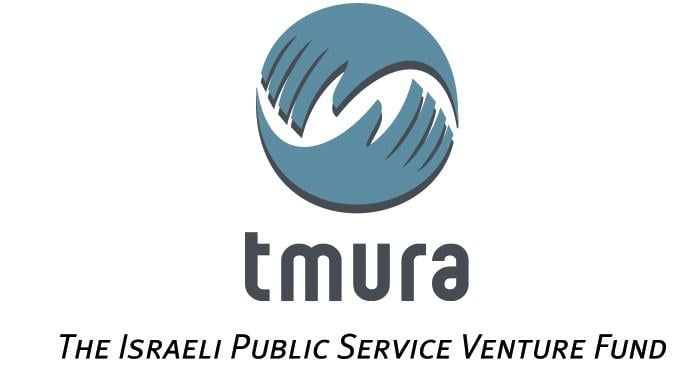Over the past decade, the non-profit organization Tmura has donated an impressive $6.3 million to youth organizations in Israel. While charitable organizations aren’t rare, the unique characteristic about Tmura is that instead of holding fund raisers and asking people for donations, they get their contributions from startups.
Tmura approaches early-stage startups and asks them to donate stock options, to be exercised when the company is sold or goes public. Out of 242 companies that donated stock options to Tmura in the past decade, 40 have made successfull exits, like XtremIO, sold in May to EMC for $430 million.
Early-stage startups are typically low in liquidity and cash-strapped, but what they can offer is potential, says Tmura, a Public Service Venture Fund founded in 2002 by the Israeli high tech and VC community.
Related Stories:
- For Every Ticket Purchased Online, Israel’s Largest Airline Will Sponsor A Tree
- Israelis Turn Their Homes Into Restaurants To Help The Poor
Yadin Kaufmann, a veteran venture capitalist, came up with the idea for Tmura, based on a similar model in the United States. The American fund, named the Entrepreneurs Foundation, is a non-profit organization that operates in Silicon Valley, Boston, Austin, and other US high-tech centers.
Modern philanthropy
Tmura’s Executive Director, Baruch Lipner, tells NoCamels: “We thought this model was perfect for Israel because there’s a strong high-tech and venture capital scene here. As people do more business with companies abroad, they see that corporate philanthropy is becoming a part of the way business is done, and so it’s also something that’s being adopted here.”
Board member Eyal Gura adds: “Social responsibility does not have to be merely a slogan for protesters or a trophy for large corporates to put on their shelf. It can be modest, yet effective and ongoing, as it was in the old days, a regular way of doing business.”
Tmura’s vision is to support educational initiatives and youth projects by sharing the wealth being created by the country’s technology sector, as well as to develop a “culture of giving” within the high-tech sector.
[youtube]http://www.youtube.com/watch?v=gLZFlIx6Vl8[/youtube]
Tmura is the Hebrew word for “change” or “metamorphosis” and also “means value for money”. It is also an anagram of the Hebrew word “ruma”, which means donation.
In its decade of activity, Tmura distributed over NIS 24 million (approximately $6.3 million) to 100 charities and NGOs, made possible through exits by startups like Schema, Kamada, TheGitsProject, Wix, Wanova and Vringo. On XtremIO’s sale alone, Tmura made $450,000.
Lipner tells NoCamels that over the past five years, donations have doubled and the number of exits tripled. The number of startups donating options to Tmura has risen from 100 in 2007 to 240 today.
Sign up for our free weekly newsletter
SubscribeOver the years, Tmura has developed a reputation in the high-tech community and close connections with investors including VC funds, micro-funds, angel investors and entrepreneurs. According to Tmura, many startups proactively approach them, as a natural step in becoming a startup with a “social conscience.”
Yaron Samid, founder and CEO of BillGuard, an Israeli startup that donated options to Tmura, tells NoCamels: “I feel I have more people behind me, not just employees and customers; there are others around us invested in our success. It’s a privilege; I think companies should line up to have the opportunity to give back to the community.”
Larger donations
Explaining their model’s benefit over the classic “write us a check” system, Lipner says: “Companies, at the stage we approach them, have no money. We could wait until they start being profitable but not all startups that exit are necessarily profitable. More importantly,” Lipner adds, “the amounts we can reach using this model is immeasurable, compared to the alternatives. Try and ask anybody to write you a check for $450,000, but with XtremeIO, it was easy!”
Youth-oriented projects
Upon a successful exit, startups are encouraged to select a grant recipient or recipients from Tmura’s list of recommended projects. Alternatively, if the startup prefers, it can also direct the proceeds to a project of its choice, through a format called donor-advised grants. Tmura encourages the companies to be more personal with the selection of their charity, but to remain focused on the field of education and youth.
“It is a broad enough focus to cover a wide range of things, but is still focused, which is attractive to the broader high-tech community,” Lipner explains.
Some challenges too
While the advantages are vast, Tmura’s model also faces some challenges. Most startups face a couple of rounds of re-capitalization in their life. During this process of restructuring, the initial stock holders, including Tmura, may be massively diluted.
With 40 successful exits out of 242 donor companies, is Tmura somewhat of a “lucky charm?”
BillGuard’s Samid doesn’t think so. According to him, startups who donate to charity have a more well-rounded outlook and people with integrity behing them.
“The common denominator between all of these startups is entrepreneurs who say ‘I am not just in it to make money, I want to help others.'”
Related posts

Rehabilitation Nation: Israeli Innovation On Road To Healing

Israeli High-Tech Sector 'Still Good' Despite Year Of War





Facebook comments